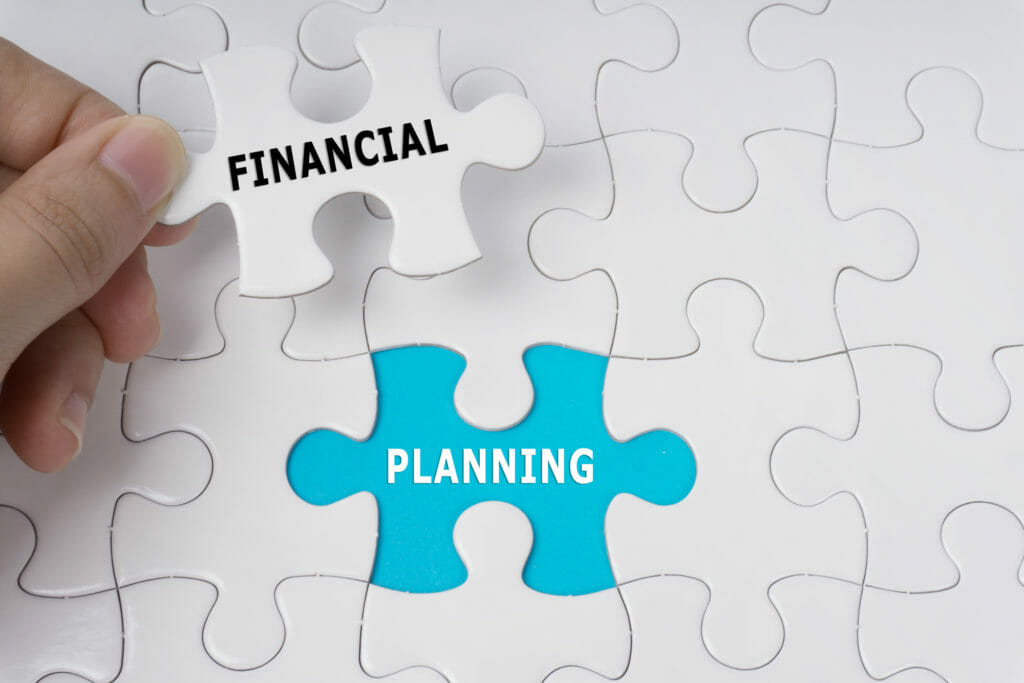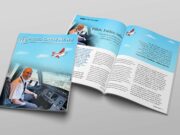 It’s hard to believe December is already here! While the year may be on its way out, there's still time to make some smart financial planning moves before the end of the year. Being proactive is always better than being reactive, especially when it comes to your finances. To ensure you're staying on course, take heed of these four financial planning tips.
It’s hard to believe December is already here! While the year may be on its way out, there's still time to make some smart financial planning moves before the end of the year. Being proactive is always better than being reactive, especially when it comes to your finances. To ensure you're staying on course, take heed of these four financial planning tips.
Tip #1 – Squeeze a little more into retirement savings
With less than a month to go, it's a good time to see if you can put some additional funds away for later in life. First, make sure you're contributing enough to your company’s retirement plan to receive their match, if one is offered. Once you’re receiving the match, consider putting additional funds into either your retirement plan or an IRA. If you're high-income (or among those in the higher tax brackets), using the traditional 401(k), IRA, or retirement savings option may be the best bet. If you find yourself in a lower-income year or in a lower tax bracket, seriously consider using the Roth option in your 401(k) or retirement plan, or contributing to a Roth IRA. Even if it's a small amount extra, every bit counts and you will feel good about putting some more away and being disciplined.
Tip #2 – Estimate your taxes for the year (it's easier than you think)
Estimating your taxes should be done in spring and fall. Between November and December is the perfect time of the year as the IRS has released the tax forms and most (if not all) changes have been announced for the year.
To estimate your taxes, you need to run a simple projection through either your accountant, financial planner, or by Web searching for a “1040 estimator.” (Try Dinkytown.net – silly name, but a great resource.) Simply complete the requested information and you'll be delivered a rough estimate of the taxes you're likely to owe.
Once you get your estimated tax bill, compare this to the federal taxes withheld to-date on your last paystub. If you're in the ballpark, great! If it appears you haven't withheld enough taxes, you may want to consider withholding more for the last few paychecks or increasing your retirement contributions (that are historically deductible). You can also look to increase other deductions, such as your Health Savings Account (if you have one) or charitable contributions.
If the amount you've already had withheld is close to, at, or over your projected tax bill, you may want to consider reducing your withholding amount for the remainder of the year. You can do this through your HR department by filing IRS form W-4. If you don't want to change your withholding, plan to file your taxes early next year so you can get your refund sooner. Make sure you have earmarked your refund for a productive use prior to receiving it! (Of course, it's always best to check with a tax professional if there is ever anything of which you're unsure).
Tip #3 – Create a net worth statement
A net worth statement is one of the easiest things to do and will have a major impact on your “financial situational awareness.” To create one, simply add up everything you own (your assets) and subtract everything you owe (your liabilities). The resulting number is your net worth. Your net worth is the single biggest determinant in your ability to reach your financial goals, and ultimately, financial independence. You should examine your net worth four times per year and make sure it's increasing. How do you increase it? You save and invest more and/or pay down (and avoid increasing) debt. Increase your assets and decrease your liabilities. You save, invest, and pay down debt by increasing your cash flow.
Tip #4 – Establish a budget and commit to increasing your cash flow
The word “budget” often carries a negative connotation, but the reality is far different. A budget actually frees you (by reducing your attention) to focus on enjoying your work and play while knowing you're on track for the future.
There are only two steps to creating a simple and effective budget: First, add up everything you have coming in (your income) and subtract everything you have going out (your expenses). The resulting number is your net cash flow. If it's negative, you are spending more than you are making, and if it's positive, you are making more than you are spending. The second step is going through and creating a target amount for each spending item. List what you would like to spend for all the different categories while ensuring there is at least something left over each month.
Once you have your budget in place, commit to sticking to it and saving 50% of your next pay increase. Doing so will increase your cash flow and allow you to save and invest more and accelerate your net worth.
 Final thoughts
Final thoughts
I always get excited as we approach a new year. A new year means a fresh start and the most financially successful people get a jump on it before it arrives. See if you can put a little more into your retirement plan, estimate your tax bill, create a net worth statement, establish a budget and commit to sticking to it, and saving your pay raises. Doing these things will put you on a stronger course to wealth and help keep you proactive. Remember, being proactive always pays more than being reactive!
























































